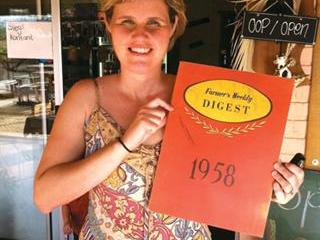Termed a non-annexure 1 country, South Africa does not have specific emission reduction targets to reach in the period 2008 to 2012, but it can voluntarily reduce emissions and receive the benefits of doing so. was explained to delegates at the recent one-day seminar on carbon trading options in Gauteng.
Hosted by PricewaterhouseCoopers (PWC) in conjunction with the University of the Witwatersrand, the seminar shed light on the opportunities in the different carbon markets and aimed to show delegates how to differentiate between real and perceived opportunities. Speakers included Alison Ramsden, Mandy Momberg and Robert Ashdown, all from PWC, Shameela Ebrahim from the Johannesburg Stock Exchange, Prof Willie Cronjé, Prof Diane Hildebrandt and Prof Coleen Vogel, all from WITS. here are currently 1 423 voluntary emission reduction projects listed worldwide, and 17 of these are in SA. Of the total, 86 are in agriculture, and currently only one of these is in SA. Delegates were told to work through a Designated Operational Entity (DOE) if they wanted to register an emission reduction project.
The role of a DOE is to validate and apply for the registration of an emissions reduction project and to verify and certify these projects. This can be done either in accordance with the Kyoto Protocol’s Clean Development Mechanism or as a voluntary reduction project. PWC is the only DOE in Africa. A company or person who successfully reduces carbon emissions will be issued with carbon credits, which are then available for trading on the open market as a commodity. Thus, reducing carbon emissions can actually make you money. – Sharon Götte
Bug watchers say heelwalker is no baby mantis
DURBAN RECENTLY HOSTED THE 23RD INTERNATIONAL CONGRESS of Entomology (ICE) on South African soil for the first time in its 80-year history. It attracted over 2 000 international entomologists who presented over 850 papers on topics ranging from pest management and pesticides to malaria, termites, bees, climate change and genetically modified organisms. SA entomologist Mike Picker presented the latest findings on mantophasmids, an insect order discovered in 2002. They are commonly known as “heelwalkers” because they walk with their “toes” in the air and are the first new insect order to be discovered since 1914.
While heelwalker specimens were collected as early as the 1890s, they’d been mistakenly identified as immature praying mantises. Picker is amongst a team of international researchers working on the shy insects, which have only been found in the Cape provinces, Namibia and Tanzania. About 20 species of the insect have now been identified, 11 of them in South Africa.
“This is just the tip of the iceberg,” he said. “We expect to discover more species as we go about our research.” Researchers have discovered that the creatures are nocturnal predators that eat small insects. They grow to between 1cm and 2cm long and do not have wings. The females and males communicate by vibrations which they create by tapping their abdomens on the ground. Their mating periods last for up to two days. Thereafter the female eats the male. – Robyn Joubert
Support grows for suspended KZN conservation boss
A number of people connected with provincial conservation organisation Ezemvelo KZN Wildlife have come out in support of lifting the suspension on its CEO, Khulani Mkhize. The suspension came in the immediate wake of an incident were Mkhize crashed a rental car while allegedly drunk after a function at Ezemvelo’s Tembe Elephant Park in June.
The political head of the KZN Department of Agriculture and Environmental Affairs under which Ezemvelo falls, MEC Mtholephi Mthimkhulu, said that the car crash was the last of a number of allegations levelled against Mkhize. Mthimkhulu added that the suspension was to allow investigations into the allegations to be conducted fairly and with respect for both the reputations of Ezemvelo and Mkhize. Meanwhile rumours have been circulating among Ezemvelo supporters that the suspension is politically motivated and an excessive action against Mkhize.
“Khulani Mkhize has been the chief executive officer of Ezemvelo since the late 1990s and, no matter what his faults are, he has been a very good leader of the organisation,” one reliable source told Farmer’s Weekly. “He has never been afraid to tackle difficult issues and has been very anti-corruption. He has also always been very approachable and has therefore been popular among Ezemvelo staff.” Sources have voiced concern that Mkhize became CEO during a time when the IFP was in charge of the province, and now that the KZN government was dominated by the ANC, this could be why efforts were being made to remove him from his post permanently.
”Mkhize has always urged Ezemvelo staff to keep politics out of their work and he has followed this rule as well. However, it appears that MEC Mthimkhulu is keen on whipping the CEO until he voluntarily throws in the towel. If this happens and a political lackey is then appointed to his post, the implications are likely to be highly dangerous for conservation in KwaZulu-Natal,” the source continued.
MEC Mthimkhulu’s spokesperson, Thami Ngidi, said that Ezemvelo was an internationally recognised institution and so the actions of its leaders would always become public knowledge. Ngidi added that maintaining a positive image for the organisation was essential and that it was best that Mkhize be put on special leave pending the outcome of the investigation into the allegations against him. “Regarding the allegations that Mr Mkhize’s suspension is politically motivated, I would like to point out that the ANC government won the KwaZulu-Natal elections in 2004,” Ngidi told Farmer’s Weekly.
“If the ANC had wanted to get rid of the Ezemvelo CEO for some reason, it would have not waited until now to do so. I believe that it is highly improbable that the Mr Mkhize’s suspension is politically motivated.” According to the MEC’s office, Mkhize will remain on suspension until further notice. – Lloyd Phillips









